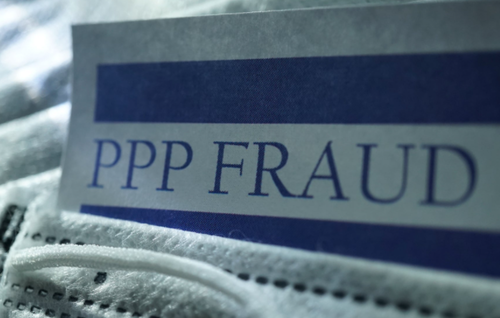Source: Zero Hedge
While hundreds of billions of dollars in PPP money has (and will continue to go) unchecked as a result of arguably the government’s most wasteful and poorly planned cash grab for citizens, the dragnet has managed to pull in a couple of offenders.
The latest of which were four California residents that were convicted by a Federal Jury on June 25 for “scheming to submit fraudulent loan applications seeking millions of dollars in Paycheck Protection Program (PPP) and Economic Injury Disaster Loan (EIDL) COVID-19 relief funds,” according to a DOJ press release.
Richard Ayvazyan, his wife Marietta Terabelian and brother Artur Ayvazyan, all based out of Encino, were each found guilty of one count of conspiracy to commit bank fraud and wire fraud, 11 counts of wire fraud, eight counts of bank fraud, and one count of conspiracy to commit money laundering, the release says. Additionally, Vahe Dadyan of Glendale was found guilty of one count of conspiracy to commit bank fraud and wire fraud, six counts of wire fraud, three counts of bank fraud, one count of conspiracy to commit money laundering, and one count of money laundering.
As a result they must forfeit “bank accounts, jewelry, watches, gold coins, three residential properties, and approximately $450,000 in cash”.
The evidence at the trial showed that the defendants used fake, stolen or synthetic identities to submit fraudulent applications. After obtaining more than $1.8 million in relief funds, the group used the cash as “down payments on luxury homes in Tarzana, Glendale, and Palm Desert” and for “gold coins, diamonds, jewelry, luxury watches, fine imported furnishings, designer handbags, clothing, and a Harley-Davidson motorcycle”.
As part of changing their identities, the group “submitted false and fictitious documents to lenders and the Small Business Administration (SBA), including fake identity documents, tax documents, and payroll records.”
The charges were being brought by the COVID-19 Fraud Enforcement Task Force, whose job is to “marshal the resources of the Department of Justice in partnership with agencies across government to enhance efforts to combat and prevent pandemic-related fraud.”
If this example is any indication, the Fraud Enforcement Task Force should have enough work ahead of them to be busy for the next several decades. The full DOJ release can be found here.


